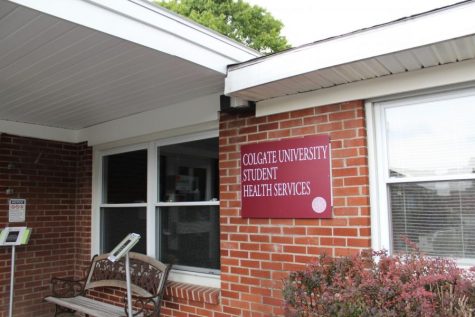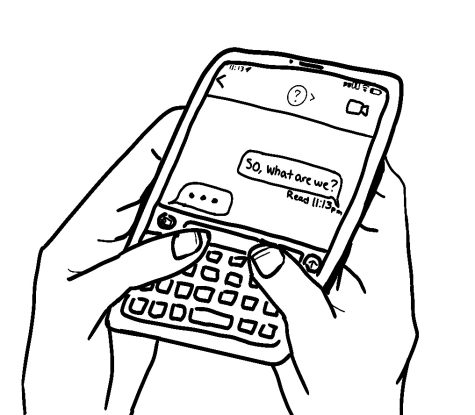Minus the City: Here’s the Deal with Alcohol and Consent
*Editorial content warning: this article contains discussion of sexual assault and sexual violence.
Our society, and certainly our school, has a complicated relationship with alcohol and consent. According to Colgate’s Student Resource Guide on Sexual Violence, a person cannot give consent if they are incapacitated as a result of drinking. This begs the question: at what point does a person become incapacitated? Is there any true consent under the influence of alcohol? According to the same guide, to reduce the risk of victimization, students should “take affirmative action for alcohol consumption” because alcohol can increase vulnerability to sexual victimization. Are students really responsible for their increased risk of being sexually assaulted while drinking? Can students drink at Colgate without worrying about being sexually assaulted?
I would say no, students at Colgate cannot drink in a public setting without worrying about being sexually assaulted. However, there are steps we can take to better understand the complicated relationship between alcohol and consent, better manage our personal risk and hopefully decrease the number of sexual assaults that happen on our campus.
First, let’s define as clearly as we can what consent is while under the influence of alcohol. According to Planned Parenthood, consent must be clearly given, meaning not under the influence of alcohol. However, in the CBSN documentary, “Sex. Consent. Education.” many students report that they engage in what they consider to be consensual sexual contact while under the influence of alcohol. The issue is further complicated by the difference between what is considered criminal and what is considered non-consensual. In March 2021, a Minnesota case garnered headlines after the Minnesota Supreme Court ordered the case to be retried because the victim of the rape was drunk, and this did not qualify under the definition of “mentally incapacitated.” This caused uproar in the community, as the Minnesota Post reported, because the ruling inferred that someone cannot be considered to have been sexually assaulted if they voluntarily consumed alcohol.
Regardless of the Minnesota ruling, it is important to remember two things. First, just because someone is under the influence of alcohol does not mean they are consenting to any sexual conduct. Second, if someone voluntarily consumes alcohol before being sexually assaulted, they ARE NOT to blame for the perpetrator’s actions. Nonetheless, the murky definition of consent while under the influence of alcohol is an issue. Forgetting the criminal definition, as it varies based on case and available evidence, let us think of consent in the context of what we owe one another as fellow students in terms of respect and kindness.
Consent is active and enthusiastic participation in any sexual activity. When alcohol plays a factor, both individuals should be “continually able to communicate their wants and needs,” according to End Rape on Campus. However, if there is any hesitation from any participating party, STOP. If there is any question as to whether a party is able to give consent, STOP. Everyone who is participating needs to be actively consenting and coherent of what is occurring. If consent is ambiguous, it is not consent. In erring on the side of extreme caution, it is always better to avoid any sexual activities while under the influence of alcohol.
Outside of consensual sexual interactions while drinking, there are steps students can take to mitigate their risk while consuming alcohol to help prevent non consensual contact. RAINN, the Rape, Abuse, & Incest National Network, recommends the following tips to increase personal safety while drinking:
- Keep an eye on your friends.
- Have a backup plan.
- Know what you’re drinking.
- Trust your instincts.
- Don’t leave a drink unattended.
- Don’t accept drinks from people you don’t know or trust.
- Check in with yourself.
- Be aware of sudden changes of how your body might feel.
Beyond these steps you can take when going out, there are other ways to get involved in preventing sexual assault on campus. Pay attention and engage with the education Colgate provides. Engage with HAVEN in educational and prevention programming. Utilize that education to be an active bystander when you are out. Be willing to have uncomfortable conversations with friends and acquaintances about things that may concern you or things you think are important to talk about regarding consent. If your friends come to you with concerns, be open, educated and willing to support them.
We, as a campus community, have a responsibility to ourselves and to each other to be educated about consent and to be actively supportive of ensuring that all sexual interactions at Colgate are consensual, regardless of alcohol consumption.
Even if you were consuming alcohol when a sexual assault occurred, remember it was not your fault. You are not alone. To speak with someone who is trained to help, call the National Sexual Assault Hotline at 800.656.HOPE (4673) or chat online at online.rainn.org.
If you wish to connect through Colgate resources, call:
- Counseling and Psychological Services: 315-228-7385. After hours, call Campus Safety at 315-228-7911 and ask to talk with the counselor on call. No further explanation is needed.
- Haven: 315-228-4286 during business hours.
- Student Health Services: 315-228-7750. After hours and for emergencies, contact
Campus Safety at 315-228-7911.

Elli Ament is a senior from Littleton, CO concentrating in history with a focus on cultural history and media. She has previously served as a Commentary...










